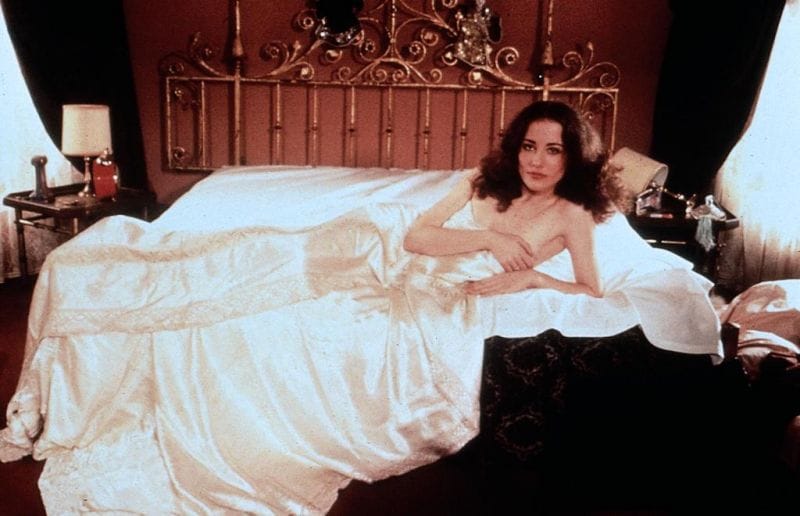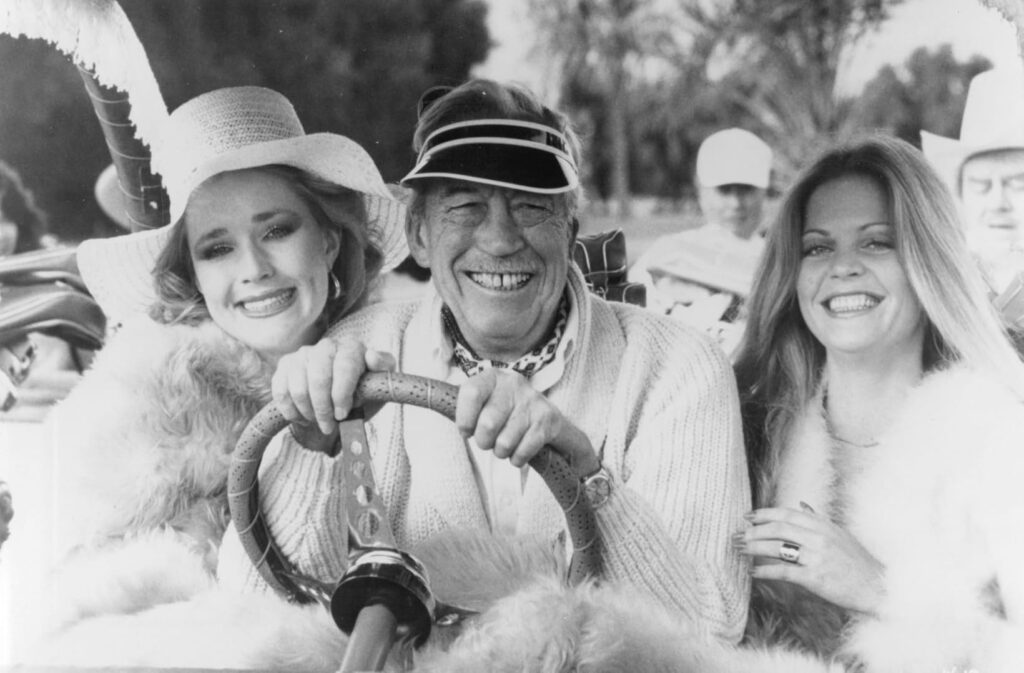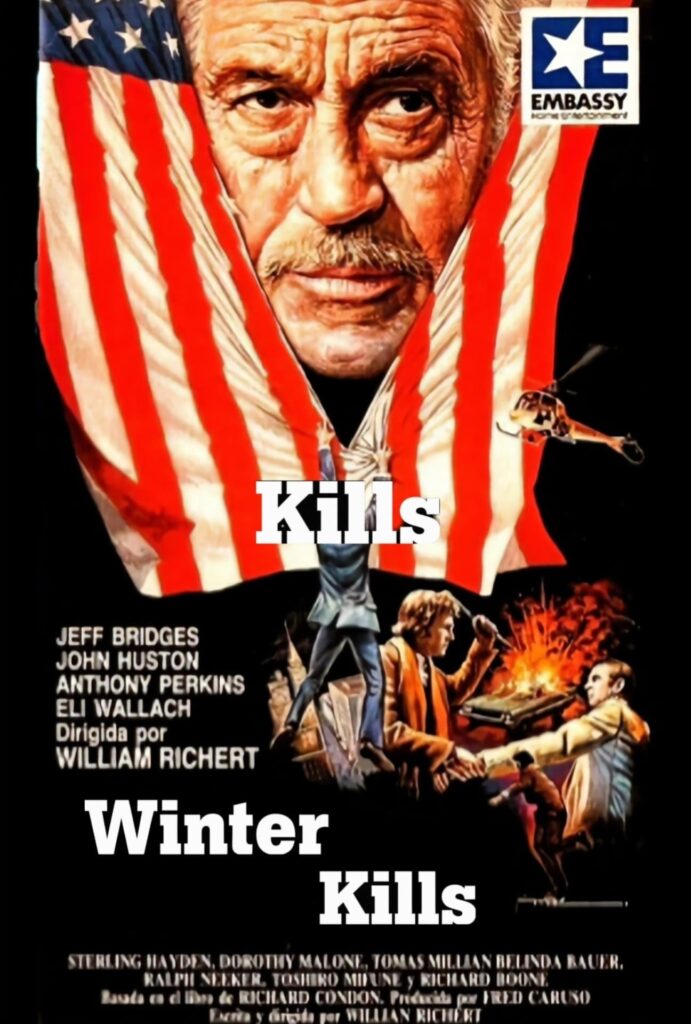
By freak coincidence I stumbled onto a very reasonably priced secondhand copy of conspiracy thriller Winter Kills (1974), by Richard Condon, legendary author of The Manchurian Candidate.
By Emad Aysha
The novel isn’t even pretending to not be about the Kennedy assassination, something even the critics of the movie version figured out straight away – despite the name and date changes.
The upshot is that the author, with his literary acumen, may have actually figured out the crime of the century. The erstwhile slain president here, Tim Kegan, was killed because he threatened the rich and what turned him self-righteous specifically were the machinations of his corrupt father.
Everybody’s wondered why JFK, in real life, became a champion of the poor and black people and tried to make peace with the Soviets and pull out of Vietnam. Here’s your explanation. Daddy issues!
It may seem lame but it makes sense. In the novel the corrupt dad wants his son to be a stoolpigeon for vested interests, including organized crime. And in the decisive moment when the President discovers this he bars the old man from the White House and reverses all his original pro-capitalist, white supremacist policies.

DADDY DEAREST: John Huston (1906–1987) is the true showman of the movie version of 'Winter Kills' (1979). I guess it pays to be the king... maker!
The boy Tim was constantly living in the shadow of his overbearing father and the father – also named Timothy – wanted his son to be a carbon copy of himself, doing all the things he couldn’t do in his life. But Tim wanted to be his own person just like his half-brother Nick, the hero of the story.
What’s also interesting about the novel, which is a page turner that I consumed in a few days, is how it plays with your mind. It’s set in the present, beginning with a deathbed confession, but skips to the past covering key episodes in the plot to kill the chief executive. The catch is many of these episodes are phony scenarios fed to the half-brother.
Nick later finds out that this was all deliberate, meant to ‘educate’ him about his own futility. Interestingly enough the henchman who spills the beans is both a security specialist and a computer expert, a professor dude who takes his cues from Goebbels and seems to have anticipated AI and its ability to model/predict human behavior.
Like I said, the author’s sixth sense is pushing him in the right direction. The worst of it is that these alternate scenarios are all equally plausible to the point that you lose hope of ever discovering the truth. Condon also reveals that the Watergate exposé itself was meant to create the illusion of democracy, with the free press triumphing in the end.
That may actually be the case, given Bob Woodward’s conduct since publishing All the President’s Men. But, more to the point, I had no idea Richard Condon was so radical in his politics. He sounds like a Marxist, and that’s something pointed out in the novel through a character who is like a surrogate father to Nick.
The novel has its flaws, mind you. It’s a bit predictable in critical places, and I kind of anticipated the major plot twist at the end. There’s forced dialogue in places used as a vehicle for exposition. Thank heavens it still pulls the wool over your eyes effectively.
The real strength of it, apart from its intellectual credentials, is its colourful and twisted cast of characters – major or minor. It gives you an unprecedented peephole into just how messed up things are in the USA; politics, personal life and everything in between.
The country really is a nation of hustlers and people addicted to sex and fame and success, at all costs. Something not surprisingly reflected in US foreign policy. The portrayal of the surrogate-Jack Ruby figure is also convincing, as is the payoff handed over to the elder Kegan to stay quiet.
In the process the novel even anticipated what happened to the 1979 movie version with the distributer pulling the film out of theatres because of the entanglements of business and politics. Namely, a certain presidential bid and contracts to the military industrial-complex.
Noam Chomsky has always said that the space programme was Kennedy’s ‘safe’ substitute for the (cloaked) Pentagon system of stimulus-spending, and that practically happens in the novel.
I wish I could praise the movie version in light of all of this but I can’t. It degenerated into a farce halfway through and with horrendous special effects to boot, and that’s in spite of the stellar cast – with Jeff Bridges and John Huston – and the gorgeous cinematography. And the even more gorgeous female cast.
Huston’s performance was over the top, portraying him as a grandfatherly vampire, literally getting transfusions from young people to stay fit at his age. The themes he introduces, the family and the take-it-or-leave-it pioneer spirit, are also poignant and establish him as a moral hypocrite.

POSTER PERFECT: There are more stars in this movie than on the American flag. Talk about democratic overkill.
It was at the mafia meeting scene that the slippage began. It was atrocious, laughable and illogical, and the good and innovative writing in the movie was only in that first half. And most of the cast was wasted, including Anthony Perkins and Eli Wallach.
The director, William Richert, says he made it into a comedy just so it could get produced, but it’s still a real shame. Maybe the director’s cut is better. And he ‘did’ anticipate the corporate takeover of the world, the information revolution and what we today call globalization. (The film almost counts as sci-fi).
The director also understood the motifs in the novel, such as the piano and thermal underwear. The chilly cold reality around us we can’t see but surely do feel, and ‘sing’ to. It was the title that drew me to the novel to begin with. That we’re dead center in winter.
The only good quality warm clothes I have I bought abroad, in England and China. We’re sorely in need of the non-vampiric variety of capitalist in this neck of the woods. I won’t hold my breath!






